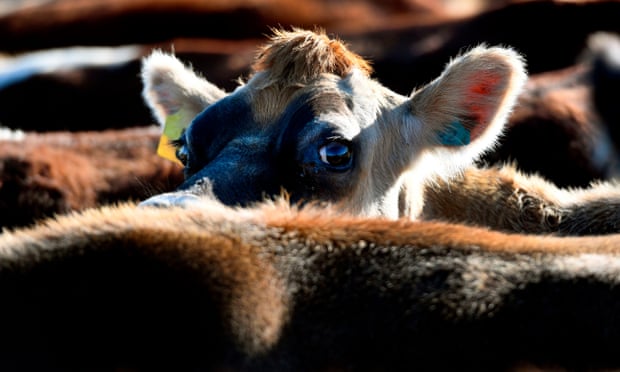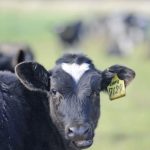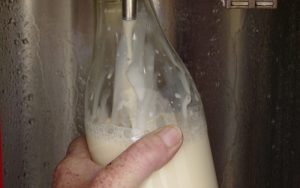
New Zealand farmers are so desperate for workers that they are offering unlimited supplies of free meat, milk, honey and firewood to tempt employees onto remote properties.
The prime minister, Jacinda Ardern, ordered the closure of her country’s borders in mid-March, sparing New Zealand the worst of Covid-19.
Despite being hailed as a global success story for fighting and managing the disease, the hard border shutdown and multiple lockdowns have taken a toll on the economy, with the country now officially in recession after the economy contracted 12%.
With a population of just 5 million, many New Zealand industries are heavily reliant on migrant labour, including in tourism, horticulture and farming.
The dairy industry contributes more than NZ$15bn (US$10bn) in export dollars to the New Zealand economy. The country is also the world’s largest exporter of dairy, producing 3% of all the world’s milk, from its 6.6 million dairy cows. But farms around New Zealand are struggling, with more than 800 jobs urgently needing to be filled.
Farmers say that despite their best efforts – including offering free accommodation, free meat, free milk, free honey, free firewood and free warm clothing – Kiwis are reluctant to apply.
“It’s a tough job; we’re out in the elements, and farms can be quite isolated and away from the urban centres,” said Wayne Langford, the dairy spokesperson for Federated Farmers.
“They’re the main challenges. We did have quite a reliance on overseas staff and it has been quite a strain on the system. The foreign staff in the country are also wanting to get home.”
Langford said farmers were prioritising animal welfare above other jobs on farms, and using machinery and automation instead of humans where possible.
The shortages are worst in the dairying hot-spots of Southland, the Waikato and Canterbury and range from hundreds of entry-level positions to senior management roles which pay six-figure sums.
“Everyone is looking for employees at the moment. We haven’t fared as badly as the tourism industry, but we’re not out of the woods yet, businesses are battling.” Langford says.
Chris Lewis owns a dairy farm in the Waikato and is the board member for employment and immigration issues at Federated Farmers.
He said the shortages could be “significantly higher” than 800 and would like to talk to the new government about gradually allowing more overseas workers in.
Entry-level workers at Lewis’ farm are offered a starting package of NZ$58,000 (US$38,000), which includes free accommodation, free meat, free milk and free honey.
“My wife has been very busy and the kids have been working on their school holidays – it’s certainly been very stressful,” says Lewis, who currently has two part-time vacancies, but no time to fill them.
“Farmers are hunkering down to get the job done but it’s not great for wellbeing or mental health.”
One upside of Covid-19 has been the gradual return of community on large farms, says Langford, with many farmers putting concerted efforts in to retain and keep staff happy, including cutting down their working hours.
“We’re seeing a lot more focus on looking after who’ve you’ve got on-farm – treating them like part of the family, and that’s a cool result of Covid,” saod Langford.
Calls for the government to loosen its border restriction are growing louder as other farming industries around the country struggle to find workers.
The horticulture industry said it is short 50,000 people for the up-coming fruit harvest, while some in the hospitality industry have been forced to reduce their opening hours because they can’t find staff to keep the doors open.

























